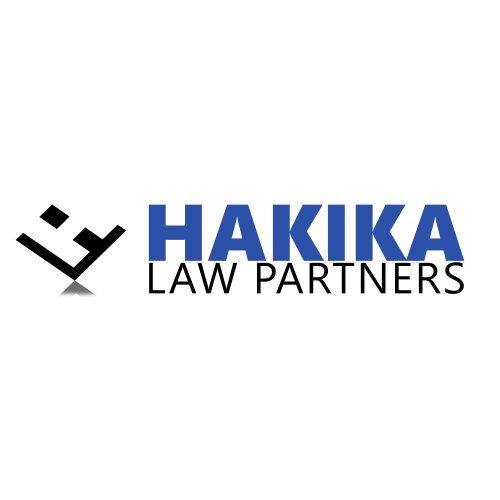Best Veterans Benefits Lawyers in Tanzania
Share your needs with us, get contacted by law firms.
Free. Takes 2 min.
Or refine your search by selecting a city:
List of the best lawyers in Tanzania
About Veterans Benefits Law in Tanzania
Veterans Benefits in Tanzania are governed by a series of laws and regulations aimed at supporting individuals who have served in the country's military forces. These benefits can include pensions, healthcare services, education opportunities, and other forms of financial assistance. The aim is to provide veterans with the necessary support to transition back into civilian life, ensuring their sacrifices are recognized and rewarded.
Why You May Need a Lawyer
While many veterans successfully navigate the benefits system on their own, there are numerous situations where legal assistance may be beneficial. This includes disputes over eligibility for certain benefits, applications for disability claims, and appeals when a claim has been denied. A lawyer specializing in veterans benefits can also provide guidance on navigating the bureaucracy involved in lodging and processing claims, ensuring all necessary documentation is provided, and representing veterans in court if necessary.
Local Laws Overview
The legal framework concerning veterans benefits in Tanzania is primarily structured around the Veterans Act and associated regulations. Key aspects of these laws include eligibility criteria based on service history, medical evaluations for disability benefits, and specific provisions for surviving family members of deceased veterans. It's essential to understand how these regulations apply to individual circumstances, as they determine the type and level of support a veteran can access.
Frequently Asked Questions
What types of benefits are available to veterans in Tanzania?
Veterans may have access to pensions, healthcare services, education and training programs, and housing assistance, depending on their service record and other qualifying criteria.
How do I apply for veterans benefits?
Applications are generally submitted to the relevant government department handling veterans affairs. It's important to include all necessary documentation such as service records and medical reports where applicable.
What documents do I need to provide when applying for benefits?
Typically, you will need to provide proof of service, medical records (for health-related claims), identification documents, and any other evidence supporting your claim.
How long does it take to process a claim?
The processing time can vary depending on the complexity of the claim and the volume of applications. It's advisable to follow up regularly to avoid unnecessary delays.
Can benefits be extended to family members?
Yes, in certain cases, benefits can be extended to immediate family members, particularly in the event of a veteran's death.
What should I do if my benefits claim is denied?
If your claim is denied, you have the right to appeal the decision. It's recommended to seek legal advice to enhance the chances of a successful appeal.
Are there special benefits for disabled veterans?
Disabled veterans may be entitled to additional support, including higher pension amounts and specialized healthcare services.
What role does the Ministry of Defence play in veterans benefits?
The Ministry of Defence oversees the administration of veterans benefits, ensuring the relevant laws are followed and benefits are distributed appropriately.
Do veterans need to pay taxes on their benefits?
Some types of benefits may be exempt from taxation; however, this can depend on individual circumstances and the nature of the benefit.
How are disputes over benefits resolved?
Disputes are typically resolved through appeals processes within the veterans affairs department, but may escalate to administrative tribunals or the court system if needed.
Additional Resources
For individuals seeking support or more information on veterans benefits in Tanzania, the Ministry of Defence and National Service is a primary resource. Additionally, organizations like the Tanzania Ex-Service League (TESL) can provide assistance and advice for veterans navigating their benefits and legal challenges.
Next Steps
If you require legal assistance regarding veterans benefits, it's recommended to contact a lawyer specializing in this area of law. Gather all relevant documents and information regarding your service and benefits issue, and be prepared to discuss your situation in detail. Local veteran organizations can often provide referrals to experienced legal professionals who can help ensure you receive the benefits you are entitled to.
Lawzana helps you find the best lawyers and law firms in Tanzania through a curated and pre-screened list of qualified legal professionals. Our platform offers rankings and detailed profiles of attorneys and law firms, allowing you to compare based on practice areas, including Veterans Benefits, experience, and client feedback.
Each profile includes a description of the firm's areas of practice, client reviews, team members and partners, year of establishment, spoken languages, office locations, contact information, social media presence, and any published articles or resources. Most firms on our platform speak English and are experienced in both local and international legal matters.
Get a quote from top-rated law firms in Tanzania — quickly, securely, and without unnecessary hassle.
Disclaimer:
The information provided on this page is for general informational purposes only and does not constitute legal advice. While we strive to ensure the accuracy and relevance of the content, legal information may change over time, and interpretations of the law can vary. You should always consult with a qualified legal professional for advice specific to your situation.
We disclaim all liability for actions taken or not taken based on the content of this page. If you believe any information is incorrect or outdated, please contact us, and we will review and update it where appropriate.
Browse veterans benefits law firms by city in Tanzania
Refine your search by selecting a city.









